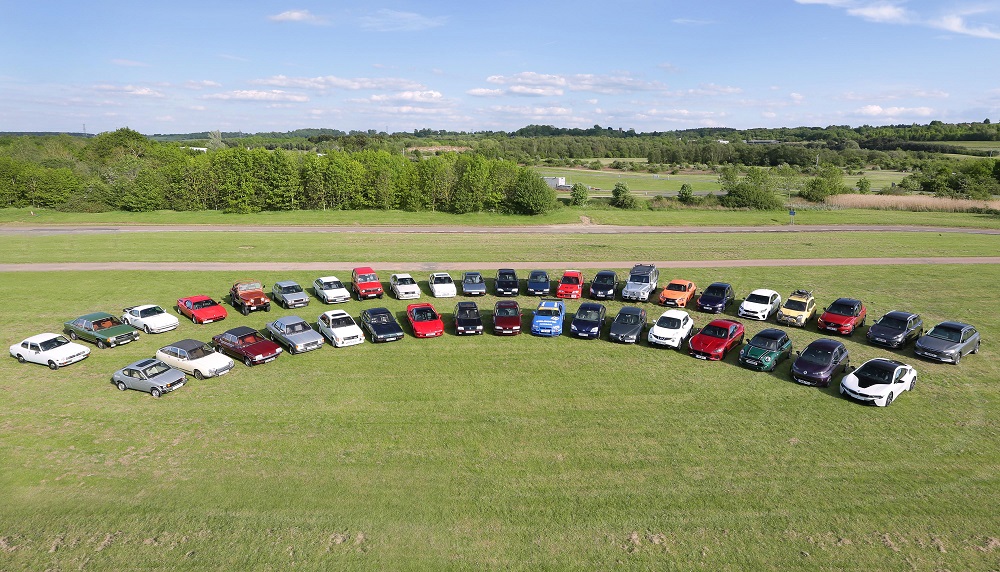This week saw our 40th anniversary Test Day event take place at Millbrook Proving Ground in Bedfordshire. The event was started in 1979 as an opportunity for manufacturers to meet with journalists and allow them to sample the full range of cars on the market. Over the years, it has got bigger, more varied and has naturally become a focal point in the automotive calendar.
This year, in celebration of the evolution of the car, we brought together 40 models spanning 22 brands and five decades, underlining the rich heritage and constant innovation of the automotive industry.
With the 40 cars on display, it was clear to see not only the changing shape and developing styles of the period, but also the enormous strides that have been made in reducing carbon emissions, with average new car CO2 down by -31.2% since 2000.
Lightweight materials, including aluminium and carbonfibre, aerodynamic designs, turbocharging, engine downsizing and technologies such as direct fuel injection and stop-start have all helped deliver huge fuel efficiency gains. A new car gets you almost 50% further on a litre of fuel than it did in 2000, helping consumers save money and reduce their environmental impact.
Where once there was a limited choice of powertrains and transmissions, today there is something to suit every driving need, with a range of manual and automatic gearboxes on everything from low emission petrols and diesels, to ultra low emission hybrids and plug-ins, zero tailpipe emission pure electric and hydrogen fuel cell vehicles.
Radical changes have also happened inside the car, with today’s cabins almost unrecognisable from those 40 years ago. From the first cassette players in the seventies and in-dash CD players and centre console carphones in the mid-eighties, to GPS-based satnav systems and Bluetooth, the driver experience has improved immeasurably.
Today, powerful phone technology and internet connectivity have led to the introduction of integrated systems such as Apple CarPlay and Android Auto, allowing drivers to access personalised music, maps and services on the move but in a safe fashion.
The innovation continues – over the next decade, the rollout of a new generation of connected and autonomous cars will revolutionise our roads and society. By 2030, it’s estimated that 47,000 accidents will be prevented and 3,900 lives saved, helping to deliver an annual £62 billion boost to the UK’s bottom line.
The automotive industry stands on the precipice of immense change. The competition will be intense and the UK industry must adapt and invest if it is to succeed. Yet political uncertainty remains, threatening four decades of achievement. It must be resolved and quickly, or else those hard fought gains will be lost, possibly forever.










